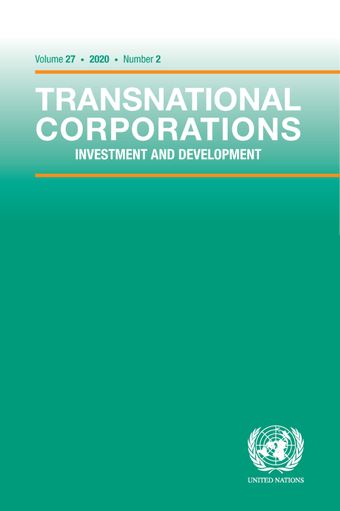-
Employment and state incentives in transition economies: Are subsidies for FDI ineffective? The case of Serbia
- Source: Transnational Corporations, Volume 27, Issue 2, Sep 2020, p. 31 - 63
-
- 21 Sep 2020
Abstract
This study analyses the effects of government subsidies for foreign direct investment (FDI) on employment at the municipal level in Serbia. It finds that the positive correlation of subsidies with employment is limited to the creation of subsidized jobs. In other words, subsidies are ineffective in creating additional jobs, beyond the jobs created by subsidized multinational enterprises (MNEs). There is no crowding-in and there is some evidence of crowding-out in the least developed municipalities. The municipalities that received subsidized investments did not experience higher employment in comparison with the period of no subsidies and in comparison with municipalities that never received subsidized investments. Some positive effects emerge, with a two-year lag, in the municipalities which, conditional on the level of development, lowered wages. The key policy implication is that subsidy-driven FDI policy, based on financial subsidies per job created, does not lead to a sustained employment growth pattern. Policymakers might need to target high value-adding activities of MNEs that induce the creation of domestic value added.



